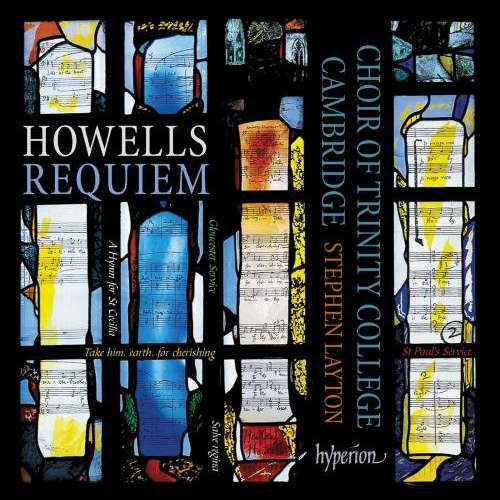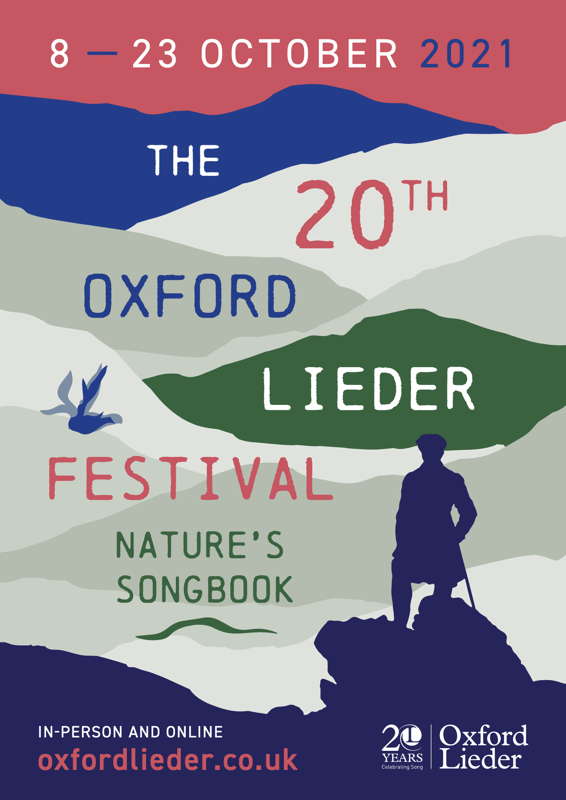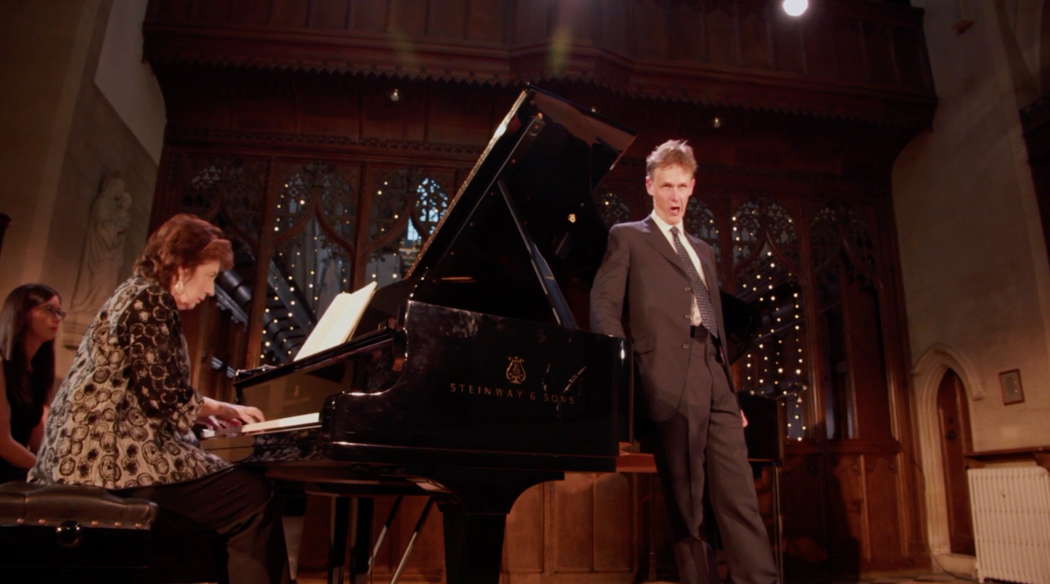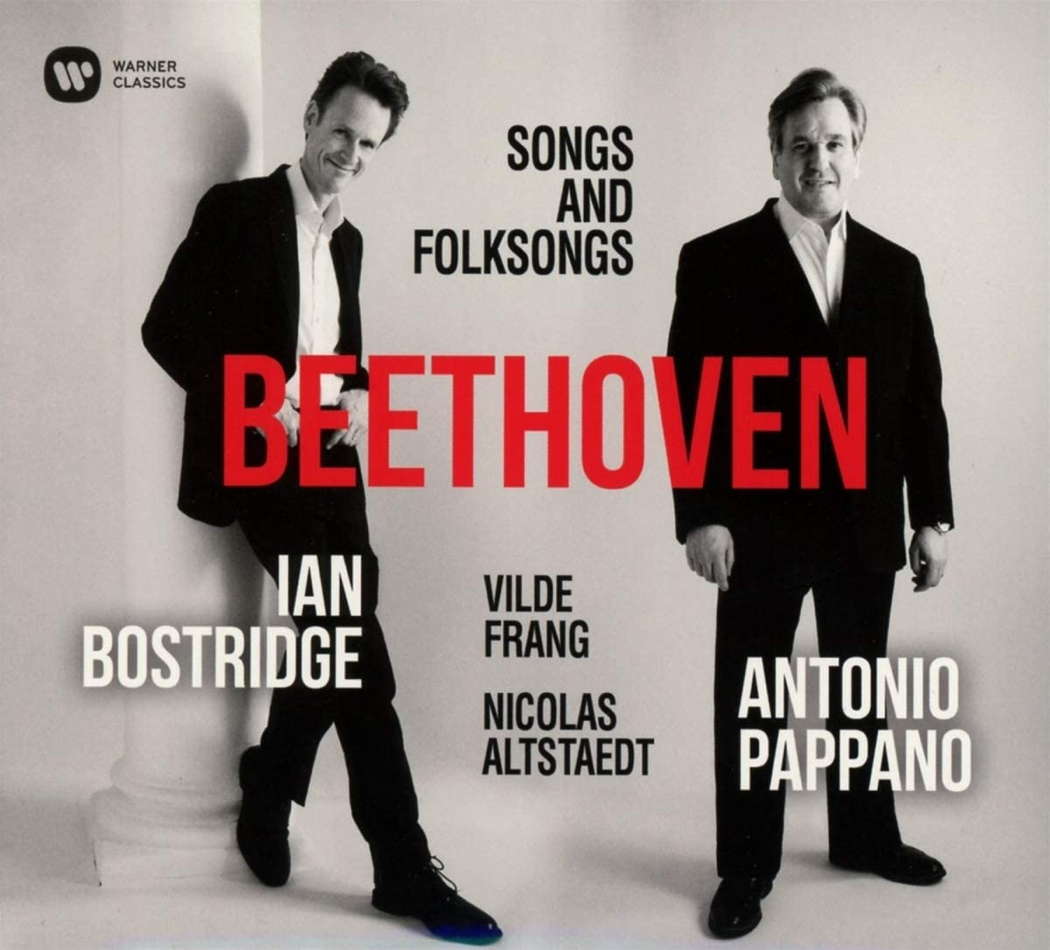- Johannes Kuhnau
- English Touring Opera
- Cavaradossi
- Sullivan
- Heinrich von Herzogenberg
- Derby Shakespeare Theatre Company
- Wensleydale
- Tyshawn Sorey: Ode to Gust Burns
 SPONSORED: CD Spotlight. Beautifully Apt - Choral music by Herbert Howells, heard by Robert Anderson.
SPONSORED: CD Spotlight. Beautifully Apt - Choral music by Herbert Howells, heard by Robert Anderson.
All sponsored features >>
 DISCUSSION: What is a work? John Dante Prevedini leads a discussion about The performing artist as co-creator, including contributions from Halida Dinova, Yekaterina Lebedeva, Béla Hartmann, David Arditti and Stephen Francis Vasta.
DISCUSSION: What is a work? John Dante Prevedini leads a discussion about The performing artist as co-creator, including contributions from Halida Dinova, Yekaterina Lebedeva, Béla Hartmann, David Arditti and Stephen Francis Vasta.
Intimacy and Intensity
Ian Bostridge and Imogen Cooper at the Oxford Lieder Festival impress PATRICK MAXWELL
Well, dear reader, it doesn't get much better than this. I cannot have been the only one inside St John's Church in south Oxford on Monday night to feel that the best of British classical music had somehow been distilled into the powers of two performers giving an hour of music from a musical world utterly different from our own to a sparse, silent crowd. One of the greatest qualities of song performance is its intimacy, the strange relationship between the singer and accompanist, between the melody and the bass, between the performers and their audience; something again almost alien to the experience of a symphony or even a piano recital. For anyone who has heard a minute of Ian Bostridge's singing, the words intimacy and intensity will come easily to mind. They are his musical alpha and omega - the wild contortions and emotional verbosity are his performance, his brand, his style. It's no wonder an hour and a quarter of his Winterreise has become the international institution it is: if he was singing some Stanford canticles, say, it would not work quite so well.
The Oxford Lieder Festival deserves the admiration of anyone interested in the fate of classical music both for its ease of access and incredible lineups. Already this month has seen Dame Sarah Connolly mixing Berlioz with Howells and Ireland, Roderick Williams singing the virtually unheard Wilhelm Stenhammer, while Dietrich Henschel and James Gilchrist beckon.

New artists are also given a welcome and of course much-needed platform; soprano Siân Dicker and pianist Krystal Tunnicliffe gave a wonderful rendition of Schumann and both Fanny and Felix Mendelssohn, which improved as it went along. Dicker's wholesome, operatic tones lend themselves to different settings, but she managed the flowing words of Heinrich Heine in Schumann's setting with admirable dexterity. Tunnicliffe is, from first listening, an exceptionally gifted and sympathetic player, whose light, flowing touch will endear itself to a host of the next best singers.
Dame Imogen Cooper was accompanying Bostridge for his fairly conventional but no less impressive programme of Beethoven's An Die ferne Geliebte and Schumann's second Liederkreis, Op 39. Cooper's playing lost fluency on rare occasions, but it was her complete understanding of the Romantic style which shone through - Bostridge's voice, at once so tender and encompassing, seems to have even more of that innate connection with the music. Every bar, note, rest, ending, was penetrating, in the moment, entranced. 'He looks possessed' remarked my neighbour after one particularly involved song was over. With what it is impossible to describe.
It would be wrong to see Schumann's songs as simply progression from the Schubertian model; his second version of Liederkreis shows a level of craftsmanship and spontaneity entirely his own. That he managed to create both this cycle and its even greater partner Dichterliebe in the same month of May 1840 is nevertheless a signal of his predecessor's incessant creativity being passed on. Bostridge varied between the rooted intensity of 'In der Fremde' and 'Zwielicht', and the liveliness of 'Intermezzo' or the passion of 'Frühlingsnacht'.

Imogen Cooper and Ian Bostridge
If there was an afterlife, it would sound like 'Mondnacht'; Schumann's original version can be too high for much of the urgent tenderness needed, but it is experience more than anything else which allows someone like Bostridge to reach the top of those phrases with a suitably 'heavenly' touch. Even Cooper's relatively brisk speed did not detract from the power of Schumann's incredibly simple grasp of the voice's rise and fall and the possibilities of his melodies.
The cycle came after an equally swift rendition of Beethoven's call 'To the Distant Beloved' (superbly recorded by Bostridge and Antonio Pappano for a record released last year).

Beethoven: Songs and Folksongs. Ian Bostridge and Antonio Pappano. Also featuring Vilde Frang and Nicolas Altstaedt. © 2020 Warner Classics (Catalogue No 9029527643)
The music has rightly been described as among Beethoven's most intense; the very amount of poetry he gets through over twelve minutes gives as much away as the constantly turning and conflicting music, at one moment joyous, the next melancholy and resigned. The greatest moment comes in the last part, where the plaintive rising melody returns 'to the lute's sweet sound', most of all at the depiction of 'those mountain heights' where the airy voice floats over the low repeated chords of the piano before disappearing for the raucous elation of the 'distance that parted us' receding and the 'liebend Herz', the loving heart, getting its reward. It was given full power by both performers through these notoriously difficult bars.
If Ian Bostridge's greatest asset is that renowned intensity, then perhaps his most impressive skill is the unswerving ability to capture his audience. Never once throughout his career has that attention dropped or the words forgotten; it is impossible to come away from his recitals without being struck by one phrase or note or consonant done differently. Art song may be a niche known mainly to a privileged elite, but with anyone like him hanging around, that same voice of Schumann and Schubert, or the love-struck Beethoven, all writing for the moment and never expecting recognition, will be heard in the important and invigorating ways it deserves.
Copyright © 14 October 2021
Patrick Maxwell,
Buckinghamshire, UK

MORE CLASSICAL MUSIC ARTICLES ABOUT OXFORD


